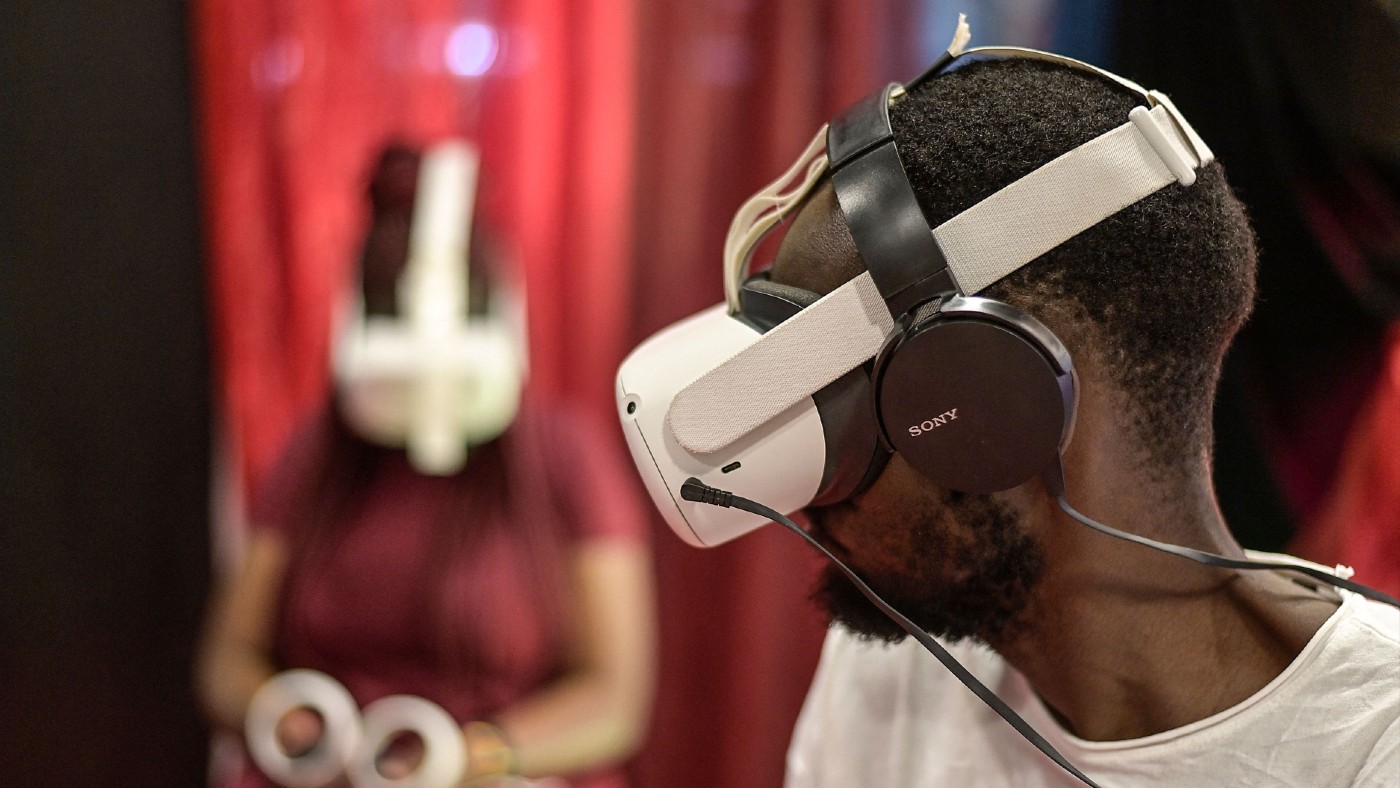Reality+ by David J. Chalmers: a ‘gripping’, ‘brain-tenderising’ book
The philosopher ponders what virtual reality could mean for man

A free daily email with the biggest news stories of the day – and the best features from TheWeek.com
You are now subscribed
Your newsletter sign-up was successful
Virtual reality may still be a “fringe indulgence”, but it won’t stay that way for long, said Josh Glancy in The Sunday Times. We are hurtling towards a Matrix-like future in which wholly convincing “computer-generated realities” are readily accessible to virtually everyone.
In Reality+, “the most alarming and thought-provoking book I’ve read in years”, the philosopher David Chalmers ponders what this could mean for humanity. He suggests that in the not-too-distant future, as our planet becomes increasingly ravaged and overcrowded, people will migrate more and more towards the virtual realm.
By “plugging in”, they’ll be able to lead richer lives than will be possible in the analogue world – ones where they inhabit “sprawling mansions”, interact with “breathtaking nature”, and spend time with people they truly love. As the physical world becomes increasingly squalid, people may be inclined to inhabit it as little as possible, going offline only to eat, sleep and relieve themselves. It’s a prospect that will strike most people as horrific, but Chalmers seems “rather pleased” with it.
The Week
Escape your echo chamber. Get the facts behind the news, plus analysis from multiple perspectives.

Sign up for The Week's Free Newsletters
From our morning news briefing to a weekly Good News Newsletter, get the best of The Week delivered directly to your inbox.
From our morning news briefing to a weekly Good News Newsletter, get the best of The Week delivered directly to your inbox.
Central to his thesis is the “seemingly outlandish” claim that virtual worlds – whether “corporate metaverses” or “slay-the-dragon VR games” – are “just as real as physical, analogue worlds”, said Kit Wilson in The Times.
Virtual realms, he says, meet all the criteria that philosophers have traditionally used to determine if a thing is real, including “mind-independence” (they exist when no one is perceiving them) and “causal power” (actions taken in them have an impact). Life lived in virtual reality can still be meaningful, he argues, and should be judged by the same moral standards as offline life. Not everyone will find such arguments convincing, but this is still a “gripping”, “brain-tenderising” book.
Many of its ideas are “frankly mindbending”, said P.D. Smith in The Guardian. For example, Chalmers argues that it’s more than probable that we are already living in a simulated universe. There are, he claims, almost certainly other civilisations with “human-level intelligence” out there, and it’s probable that at least some of these will have created their own simulated universes. Therefore, statistically, it’s “more likely we’re living in a simulation than in the original version of our world”.
Chalmers “disappears down a few too many philosophical rabbit holes”, said John Thornhill in the FT. But overall, this is a “rich”, “scintillating” work that raises profound questions about where humanity is headed.
A free daily email with the biggest news stories of the day – and the best features from TheWeek.com
Allen Lane 544pp £25; The Week Bookshop £19.99

The Week Bookshop
To order this title or any other book in print, visit theweekbookshop.co.uk, or speak to a bookseller on 020-3176 3835. Opening times: Monday to Saturday 9am-5.30pm and Sunday 10am-4pm.
-
 What are the best investments for beginners?
What are the best investments for beginners?The Explainer Stocks and ETFs and bonds, oh my
-
 What to know before filing your own taxes for the first time
What to know before filing your own taxes for the first timethe explainer Tackle this financial milestone with confidence
-
 The biggest box office flops of the 21st century
The biggest box office flops of the 21st centuryin depth Unnecessary remakes and turgid, expensive CGI-fests highlight this list of these most notorious box-office losers
-
 A thrilling foodie city in northern Japan
A thrilling foodie city in northern JapanThe Week Recommends The food scene here is ‘unspoilt’ and ‘fun’
-
 Tourangelle-style pork with prunes recipe
Tourangelle-style pork with prunes recipeThe Week Recommends This traditional, rustic dish is a French classic
-
 Samurai: a ‘blockbuster’ display of Japan’s legendary warriors
Samurai: a ‘blockbuster’ display of Japan’s legendary warriorsThe Week Recommends British Museum show offers a ‘scintillating journey’ through ‘a world of gore, power and artistic beauty’
-
 BMW iX3: a ‘revolution’ for the German car brand
BMW iX3: a ‘revolution’ for the German car brandThe Week Recommends The electric SUV promises a ‘great balance between ride comfort and driving fun’
-
 Arcadia: Tom Stoppard’s ‘masterpiece’ makes a ‘triumphant’ return
Arcadia: Tom Stoppard’s ‘masterpiece’ makes a ‘triumphant’ returnThe Week Recommends Carrie Cracknell’s revival at the Old Vic ‘grips like a thriller’
-
 My Father’s Shadow: a ‘magically nimble’ love letter to Lagos
My Father’s Shadow: a ‘magically nimble’ love letter to LagosThe Week Recommends Akinola Davies Jr’s touching and ‘tender’ tale of two brothers in 1990s Nigeria
-
 Send Help: Sam Raimi’s ‘compelling’ plane-crash survival thriller
Send Help: Sam Raimi’s ‘compelling’ plane-crash survival thrillerThe Week Recommends Rachel McAdams stars as an office worker who gets stranded on a desert island with her boss
-
 Book reviews: ‘Hated by All the Right People: Tucker Carlson and the Unraveling of the Conservative Mind’ and ‘Football’
Book reviews: ‘Hated by All the Right People: Tucker Carlson and the Unraveling of the Conservative Mind’ and ‘Football’Feature A right-wing pundit’s transformations and a closer look at one of America’s favorite sports